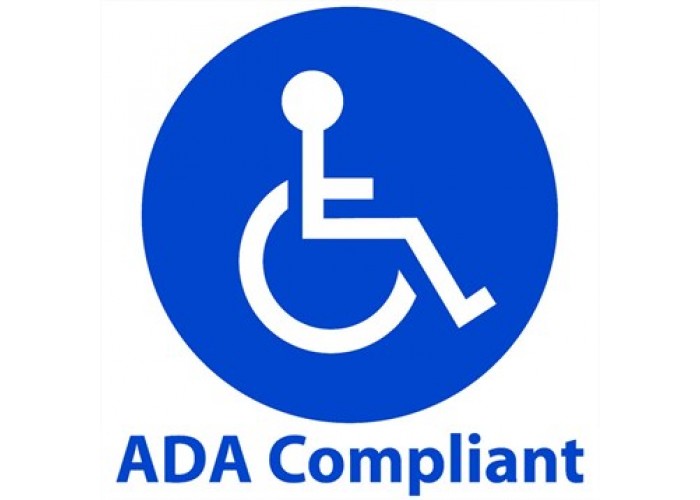You’ve likely heard about the ADA before, particularly in terms of ADA guidelines or ADA compliance. But unless you’re directly impacted by it, you may not know a whole lot about it. It’s an essential part of ensuring social equality, and it is important for all Americans to know at least a little bit about it.
Formation and Enforcement
ADA stands for the Americans with Disabilities Act. It was introduced in 1990 to protect individuals with disabilities across a number of different areas of their lives, including employment, transportation, government services, and more. The goal of the ADA is to make sure that people with disabilities don’t experience discrimination. The ADA is enforced by various governmental agencies, such as the Federal Communications Commission, the department of transportation, the department of health and human services, and the department of justice.
ADA Guidelines
The guidelines that need to be followed will vary based on a number of things. But the main goal in creating ADA guidelines is to make the world more accessible to those with a disability. In the area of transportation and public buildings, this may involve adding a ramp to allow entrance to a building, expanding doors to make them wheelchair accessible, providing wheelchair-friendly transportation, and so on. In terms of employment, ADA guidelines require that employers may not discriminate against current or future employees based on their disability. If a person is capable of doing a job, either with or without reasonable accommodations, they should be treated as any other candidate or employee.
ADA Compliance
All public entities must adhere to ADA guidelines. If they are not compliant with the standards set by the ADA, they can incur heavy fines in addition to fixing the issue in question to be compliant. If the ADA covers a particular area, such as medical care, transportation, public buildings, government services, or employment, responsible parties must follow the guidelines to ensure fair and equal treatment to all individuals, regardless of disability.
The ADA & Public Transportation
For many of the families that All Things Possible works with, transportation is one of the biggest barriers. Legally, public transportation, including city buses, commuter rail, and subway stations, must provide access to their services to those with disabilities. However, in many cities throughout the US, public transit accessibility is extremely limited, if it even exists at all. Charlotte’s public transportation, known as CATS, does provide wheelchair-accessible rides, but individuals must get themselves to a bus stop and hope the wheelchair ramps are in working order, which is a common concern. Before you assume wheelchair-accessible public transportation is available in your area, double check that it actually is. In fact, certain parts of York County, SC, including Lake Wylie, Fort Mill, and Tega Cay, just recently began offering bus service in the area.
So long as a person with a disability is capable of utilizing public transport and accessible public transport is available in their area, they cannot be refused transportation. If a person is deemed incapable of traveling on public transport, they are still able to use paratransit, which is a scheduled service where individuals are dropped off and picked up to get where they need to go. The service given through paratransit is expected to be comparable to the service provided by public transport.
While ADA guidelines have brought significant improvements in the treatment and accessibility of those with disabilities, solutions are not always quite as simple as we would like to believe. Systems are flawed and people make mistakes, meaning that those in wheelchairs still face constant struggles as they attempt to navigate the world and access the things they need. Additionally, some areas simply don’t have wheelchair-accessible public transportation at all, leaving those in wheelchairs to remain at home unless they have other reliable transport. At All Things Possible, we aim to provide wheelchair vans to those in need to eliminate one of the biggest struggles of someone in a wheelchair. Join our cause today, or contact us now to learn more about what we’re doing in Charlotte.







